middle east college, Muscat: Exemplary Indo-Oman joint venture
A private higher education institution promoted by Omani and Indian edupreneurs, MEC (estb.2002) has built an excellent reputation for providing high-quality computer science, engineering and business management education to 4,500 students. It is now poised to expand operations abroad – DILIP THAKORE
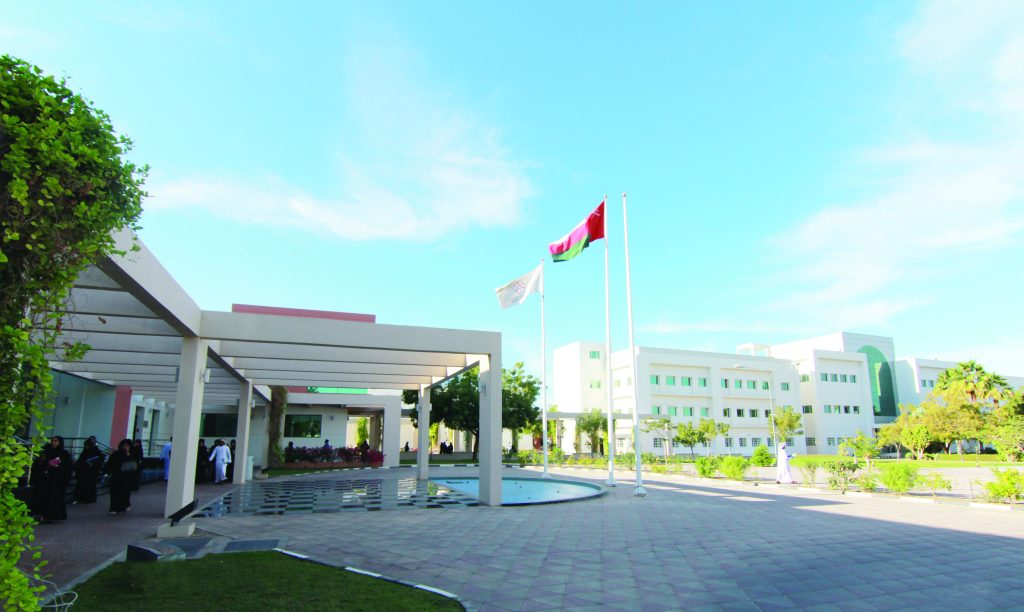
MEC campus: valuable edupreneurship lessons
In the popular imagination, the Sultanate of Oman is a dry desert outpost of the United Arab Emirates (UAE), a confederation of seven tiny independent kingdoms (pop. 11.4 million) of which Dubai (pop.4 million) with its Burj Khalifa, gleaming skyscrapers and luxe shopping malls is the commercial capital. But the popular imagination requires correction.
Oman is a totally independent crude oil-rich kingdom (pop.5.3 million) presided by His Majesty Sultan Haitham bin Tariq who succeeded his cousin Sultan Qaboos bin Said Al Said after he ruled over the sultanate for nearly 50 years from 1970 until he passed away in 2020. Under the enlightened and progressive rule of the Al Bu Said dynasty, with the ready, willing and able cooperation of expatriates from around the world who constitute over half the population of Muscat, the city is fast emerging as a business, commerce and industry hub in its own right and has set its sights on levelling up with Dubai and Riyadh (Saudi Arabia) as a commercial — and especially education — epicenter of the Middle East.
Significantly, this progressive sultanate in which Islam is the dominant religion — women enjoy equal civil rights and occupy high positions in government, industry and education institutions — has a long shared history with the Indian subcontinent dating back thousands of years, a narrative glossed over by British and Anglophone historians.
Oman’s ports of Sur and Sohar were important pit stops for ships plying the Indo-Arabian maritime trade network with merchants moving goods (dates, frankincense, and horses traded for spices, textiles, rice, and timber from India) since 3,000 BCE. Coastal Indian communities, especially from Gujarat, Kerala, and Maharashtra, have long-standing business and commerce relationships with Omani merchants, moving goods between India, Mesopotamia, and East Africa.
As a result of this long shared history, Indian professionals and workers who constitute 30 percent of Oman’s expatriates, are active in trade, construction, healthcare, and education sectors and Indian culture — food, films, festivals — has a visible presence in the country, especially in Muscat.
Oman was conquered and ruled by European maritime powers including the Portuguese (1507-1650) and later became a British protectorate until 1971 when the much-revered Sultan Qaboos established Oman as an independent nation. Latter-day Omanis — always a culturally rooted people proud of their traditions and autonomy — tend to be less deferential towards Europeans than people in other Middle East countries. Several haveli style-homes of businessmen from Gujarat with centuries-old commerce links with the sultanate, overlook Muscat’s spic-n-span, Muttrah port. Indian businessmen and professionals residing in Oman aver that natives of the sultanate tend to be more friendly and welcoming of Indian businessmen and health and education professionals than other Middle East countries.
Therefore when Dr. Glenn Khorgonkor, a former vice president of the globe-girdling Manipal Education and Medical Group (MEMG) who played an important role in establishing MEMG’s thriving Malaysia and Dubai campuses and currently Founder-Chancellor of the Martin Luther Christian University, Shillong (estb.2005) and Chairperson, Board of Trustees of Middle East College, Muscat (MEC, estb. 2002), suggested that in light of EducationWorld’s global perspective, your editors might do well to check out MEC — an Indo-Oman venture — for coverage, we accepted the offer despite pressing deadlines to make a lightning fast visit to MEC’s Muscat campus. We were also persuaded by the reality that Muscat is a mere three hours flight from Bangalore which hosts this publication’s editorial office.
The three-day audit-visit to MEC provided valuable lessons in edupreneurship, institution development and management as also the importance of academic and administrative autonomy in higher education institutions (HEIs).
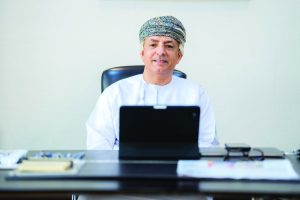
Al Sabahi: student-centric institution
A privately promoted self-financed HEI providing four-year undergraduate computer science, engineering and business management education, MEC has an interesting history. It was ideated in the UK by two business management students — Oman-born Abdullah Saif Ahmed Al Sabahi, a political science grad of New England College, Littlehampton (USA), who pressed on to study business management at University of Wolverhampton (UK), and India (Kerala)-born Lefeer Muhamed, a journalism, psychology and English literature graduate of Christ University, Bangalore with an MBA from Wolverhampton University. While at Wolverhampton, Al Sabahi and Lefeer (as he prefers to be addressed) struck a friendship, banding together to promote MEC on a bare 25-acre sandy site in suburban Muscat where the government proposed to build an education hub, christened the Knowledge Oasis.
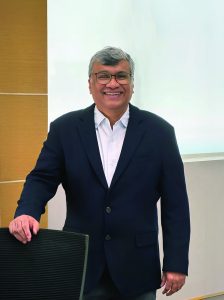
Lefeer Muhamed: social media publicity
For getting this enterprise promoted in the new millennium (2002) off the ground, the young edupreneurs recall with gratitude the aid and advice they received from the Manipal Academy of Higher Education (MAHE), in particular its Chancellor Dr. Ramdas Pai and his lieutenant Dr. Glenn Khorkongor (aka Christo).
“We received invaluable institution capacity building aid and advice from MAHE in our initial, starting years. Indeed, our very first batch of graduates were awarded MAHE degrees,” recalls Lefeer. However, shortly thereafter in 2006, MEC entered into a long-standing institution development and affiliation agreement with Coventry University (UK) which has an excellent global reputation for its high-quality engineering study programmes. Subsequently in 2018, MEC also entered into an affiliation agreement with the Breda University of Applied Sciences, Netherlands.
Since then, with Dr. Sabahi and Lefeer at the helm, the college — which has “never recorded a loss” in its P&L account — has grown from strength to strength. Currently MEC, which offers 18 four-year undergrad and eight postgrad computer science, engineering and business management programmes to 4,500 students on its globally benchmarked 25-acre campus with a built-up area of 460,000 sq. ft, is among Oman’s largest private higher education institutions attracting students from across the Middle East.
Last year in tacit acknowledgment of its excellent management capabilities and institution development skills, MEC was contracted to transform the floundering all-women Jumeira University, established on a 15 acre campus in downtown Dubai, into the top women’s computer science, engineering and business management university in the Middle East (see box p.120).
“Right from the start our objective was to develop MEC into a learning environment focused on the holistic well-being of students. Almost a quarter century later, although continuous improvement in a fast-changing industry and business environment is our credo, I’m fairly satisfied that we have built a student-centric learning institution providing high quality skills-building experiential education to our 4,500 students. Thus far we have graduated 15,048 students, and most of them are either well-placed in industry not limited to Oman and the Middle East or are successful entrepreneurs,” says Founder-Chairman Dr. Al Sabahi.
Founder-Managing Director, Lefeer Muhammad who travels the world visiting top-ranked universities “as a student” studying their best practices, is also pleased that 23 years after it was promoted “with modest aspirations”, through rigorous quality control and strong links with industry and reputed HEIs around the world, MEC has developed robust experiential learning curriculums and degree programmes.
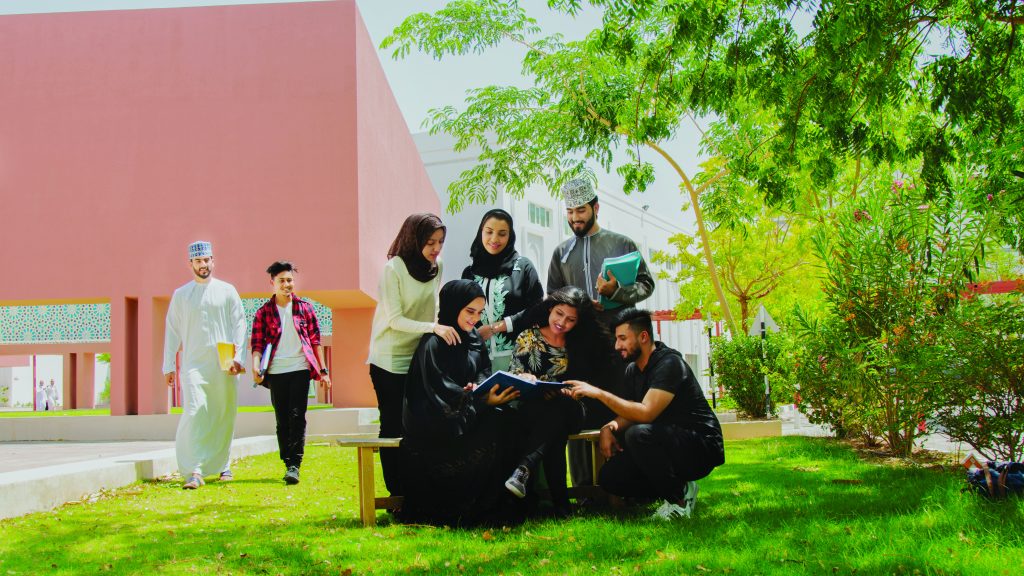
MEC students: robust experiential learning curriculums.
“In MEC our focus is on developing students’ technical and life skills while enabling them to remain culturally rooted in the best positive principles of Islam — Haqq, that means truth or right and Ikhlas, meaning sincerity with good intentions and pure heart, and Amanah which translates into trust, honesty, and faithfulness. With strong focus on also encouraging students’ co-curricular and extra-curricular activities, our undergrad education model has received excellent social media and word-of-mouth publicity and could prove to be a model for the UAE and Middle East countries,” says Lefeer.
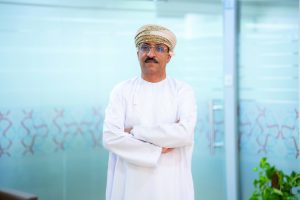
Dr. Saleh Al Shaabi
This optimism is shared by Dr. Saleh Hamid Nasser Al Shaabi, an alum of Tennessee State University, USA and University of Wolverhampton. A former government bureaucrat (2005-16) with stints in the commerce and tourism ministry, Al Shaabi was recently appointed Dean of MEC. “A distinguishing feature of MEC is student-led learning. Our comprehensive curriculum provides co-curricular, extra-curricular and soft skills development programmes and has faculty and student exchange partnerships with universities in Malaysia, South Korea, Saudi Arabia, the UK and India. This is a student-centric, progressive, yet culturally rooted HEI,” says Dr. Shaabi who supervises academic delivery and administration at MEC.
Currently MEC offers its 4,500 students undergrad and postgrad degree programmes in engineering, science and technology, business management and archival studies, of which the computing and electronics engineering faculty is the most popular with an aggregate enrolment of 1,570 students.
“This faculty is MEC’s flagship initiative, as the college started its innings as a computer sciences teaching institute. Since then, it has evolved to offer eight undergrad and four postgraduate programs in cutting-edge engineering disciplines including data science and cybersecurity. The differentiator of our curriculum and pedagogy is that we have optimally blended theory with hands-on learning in our seven state-of-the-art labs. Moreover, our location in Knowledge Oasis Muscat — the IT hub of Oman — provides MEC students excellent access to internship opportunities with blue-chip companies. Students are provided a practical, industry-focused curriculum with mandatory internships with mentors from industry,” says Dr. Santosh John, a computer science alum of Kerala, Madras and Coventry universities with prior teaching experience at the Cochin University of Science & Technology, who signed up with MEC in 2006 and currently heads the department of computing and electronics engineering.
Another defining feature of this path-breaking HEI is its student-centricity and innovative capabilities. For instance, it has institutionalised offices such as academic quality assurance and employability. Unlike most HEIs in India, MEC hosts an independent internal Office of Quality Assurance tasked with the duty to ensure that the syllabi and curriculums of the college’s 18 undergrad and eight postgrad programmes are internationally benchmarked.
“The people — including youth — of Oman are very traditional and family-oriented and averse to traveling abroad for higher education or work. Therefore we have built a globally comparable HEI in Oman itself. I believe that over the past 23 years MEC has developed a high-quality undergrad professional education model exportable to Arab world countries and perhaps India as well,” says Nandita Ganesh, an electronics engineering postgrad of Karnataka and Rajasthan universities and currently Head of Quality assurance at MEC.
Moreover in sharp contrast to the practice of the great majority of India’s 52,081 undergrad colleges and 1,338 universities that rely solely on external validation of their study programmes after which they cavalierly certify graduates without assuming responsibility for students’ success in the jobs market, the MEC leadership has institutionalized the offices of student success and employability.

Mathew: QEN self-directed learning
Taking cognizance of the frequently overlooked reality that IT professionals, engineers and even business management graduates in non-English speaking countries experience English language communication difficulties, way back in 2004, MEC’s top management recruited Dr. Priya Mathew, a linguistics graduate of Calicut University with a Ph D in applied linguistics from Coventry University, to establish the college’s Academic Writing & Student Success Centre.
“Our brief is to improve students’ English writing skills in their chosen subjects and vocational aspirations. And while improving their writing skills, we also prepare students to develop their English language speaking skills, co-curricular and networking activities to enhance their employability through our value proposition QEN (qualifications, experience and networking) programme based on self-directed learning,” says Mathew.
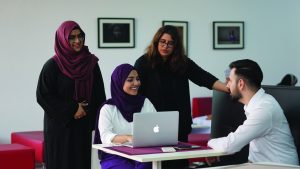
MEC business management students: strong industry partnerships.
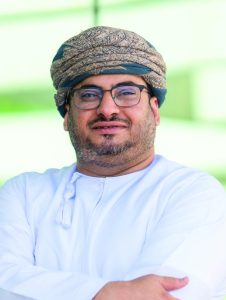
Al Jahwari
Preparation of students for success in their jobs and workplaces is supplemented by MEC’s Directorate of Employability. Dr. Harith Al Jahwari, a graduate of MEC with a Ph D from Oman’s premier government-run Sultan Qaboos University and currently Director of Employability and Partnerships, believes that strong partnerships with industry which translate into joint design of syllabi and curriculums, student internships, with industry professionals serving as visiting faculty and start-ups being incubated on campus, are the formula for boosting students’ employability. According to Dr. Harith, MEC has signed academy-industry partnerships with 52 Omani and seven regional (Arab world) companies to support campus-based start-ups and incubated enterprises.
“We work closely with the Academic Writing and Student Success Centre to help students write their CVs and prepare them for job interviews, stage and participate in career fairs, and prepare students for workplaces in our World of Work Services and Entrepreneurship and Alumni Engagement centres. The outcome is that the majority of MEC graduates are employed in Oman and Arab countries and the rest are either in higher education or self-employment,” says Harith.
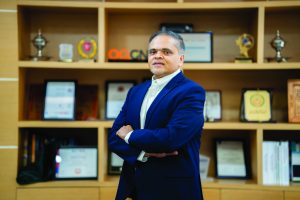
Ashwin John: self-financed growth
Although over the past 23 years MEC has established an excellent reputation in Oman, UAE and GCC (Middle East) countries for its robust academic programmes and extraordinary preparation of students for workplaces and entrepreneurship, this steady academic and reputational growth has been enabled by tight financial management and resource optimization. A large share of the credit for this is widely accorded to Ashwin John, CEO, Deputy Dean and Registrar of the college who signed up with MEC ab initio when it was started as an IT education college 23 years ago
“The steady and orderly growth of MEC which was started in one building with 200 students 23 years ago into a highly respected HEI providing quality IT, engineering and business management degree programmes to 4,500 students is very satisfying. It is the outcome of developing rigorous academic programmes, quickly adopting best teaching-learning practices, strong linkages with industry and academic institutions abroad, including MAHE, India and Coventry University, UK. Moreover, by outsourcing several academic and non-academic activities such as hostels, coffee shop, labs and leasing unutilized college property, we have been successful in diversifying our revenue streams. As a result, MEC hasn’t been in the red in any year since it was promoted almost a quarter century ago and has self-financed its growth and development,” says John, a graduate of St. Joseph’s College, Bangalore and Loughborough University, UK.
The upshot of balanced, calibrated institution building supplemented with prudent financial management and cost-effective recruitment practices is that MEC is not only a well recognised and favoured HEI in Oman, it is receiving good notices in the UAE and beyond — as testified by it being called in to transform the flagging all-women Jumeira University, Dubai

Raybould: export-ready model
“There’s no doubt in my mind that measured by the yardsticks of embedding skills into degree programmes, student-centricity, people management, integration with industry and agile mindset of leadership, MEC has attained best global standards. I believe that it is ready to export its model to the GCC and MENA (Middle East and North Africa) countries,” says Chris Raybould, Promoter-Managing Director of London-based Centric Global Consultancy LLP which provides top personnel recruitment, deployment and institutional management services to corporates and HEIs (including MEC) worldwide. Raybould is eminently qualified to make this assessment because he played a major role in infusing Coventry University’s engineering programmes with high employability quotient.
Focus on providing students with robust academic degree programmes supplemented with intensive industry internship and skilling modules to prepare them for employment and/or entrepreneurial initiatives has been retained in MEC and explains the college’s top-ranking in Oman and its ascending reputation in the UAE and MENA.
For educationists and academics readers of this publication it’s pertinent to note that MEC is essentially a highly successful Oman-India joint venture. Whether this exemplary academic institution building and development is organic to the separate and distinct Sultanate of Oman or is exportable to the UAE and Arab world nations and perhaps third world countries and beyond, will be determined by success of the MEC management in adopting modern technology and AI to upgrade the study programmes and success in resuscitating the floundering Jumeirah University, Dubai (estb.2012) of which it assumed charge last year.
This endeavor represents a formidable double-barrel challenge. Not only has enrolment at this all-women university sited on a well-furbished high value 15-acre campus in downtown Dubai plunged to 250 students currently, the MEC leadership has to overcome the challenge of providing modern computer sciences, engineering and business management education to women students permitted to avail secular professional education relatively recently. With the UAE emirates and Dubai in particular emerging as global business, finance and commerce hubs, their enlightened governments are determined to improve the region’s FLPR (female labour participation rate) which is a necessary condition of rapid economic development, and improving the workplace and social status of women citizens.
If the MEC management succeeds in replicating its Oman institution and capacity-building success story in Dubai, it will emerge as a formidable higher education force in the UAE and MENA countries. The auguries are that it will succeed.
With Summiya Yasmeen
SCHOLASTIC OPTIONS AT MEC
Middle East College offers a wide range of study programmes across engineering, science and technology, business and management, and archival studies.
Engineering. B.Eng (Honours) in Mechanical Engineering, Civil Engineering, Electronics and Telecommunications, Electronics and Instrumentation, Software Engineering, Computer Engineering with pathways in Cyber Security and Networking; and M.Sc in Electronic Engineering.
Science and Technology. B.Eng (Honours) in Software Engineering and Computer Engineering (with pathways in Cyber Security and Networking); B.Sc in Computer Science with pathways in Data Analytics, Software Technology, and Computer Science; B.Sc (Honours) in Renewable Energy, Quantity Surveying and Construction Management; M.Sc in Information Technology, Data Science, FinTech, Cyber Security, Electronic Engineering, and Construction Project and Cost Management.
Business and Management. Bachelor of Business Administration (BBA) in Accounting and Finance, General Management, Marketing, and Human Resource Management; B.Sc (Honours) in Logistics Management; M.Sc in FinTech; and MBA.
Archival Studies. B.Sc in Archives and Records Management; and M.Sc in Records and Information Management.
Annual tuition fees: OR 3,000-3,500
Monthly living expenses (hostel): OR 65-125
NB: Omani Rial (OR) = Rs.228
Jumeira University, Dubai
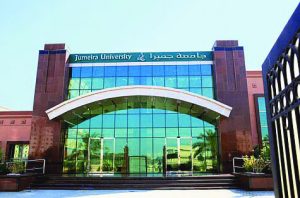 Middle East College’s first venture beyond Oman’s borders is Jumeira University (JU, estb. 2012) Dubai. Last year, the MEC management signed an agreement with JU, under which it will lend its operational expertise in delivering undergraduate computer science and business management education to JU’s 250 women students. Moreover MEC will support JU in building capacity in student experience, enrollment and registry, employability, and technology.
Middle East College’s first venture beyond Oman’s borders is Jumeira University (JU, estb. 2012) Dubai. Last year, the MEC management signed an agreement with JU, under which it will lend its operational expertise in delivering undergraduate computer science and business management education to JU’s 250 women students. Moreover MEC will support JU in building capacity in student experience, enrollment and registry, employability, and technology.
Jumeira University College, Dubai, was established 13 years ago as a co-educational institution offering degree programs in Islamic Studies and other professional disciplines by Major General Khalifa Bin Dhaen Al Mheiri under a royal grant. This high-potential university’s campus with excellent infrastructure is sited in downtown Dubai.
During the Covid-19 pandemic JU experienced a sharp decline in student enrollments. In 2023 it repositioned itself as an all-women’s professional education university, although its school of Islamic Studies continues to welcome male and women students.
“The governments of Oman and Dubai are both deeply committed to women’s empowerment and to improving the female participation in the labour force (FPLF) rate, which currently remains below the Asian average. At MEC, we have over 700 women students residing on our Muscat campus. We are therefore well-qualified and possess substantial experience in providing women students with culturally rooted higher education in modern disciplines such as computer science and business management. We have set ourselves the target of achieving break-even in the current academic year and increasing cumulative student enrollment to 1,000 by the end of August 2027,” says Dr. Mounir Dhibi, a computer science alumnus of Rennes University (France) and currently pro tem President of JU.
For MEC, this is an inflection-point project that could transform the institution into a transnational leader in professional education.





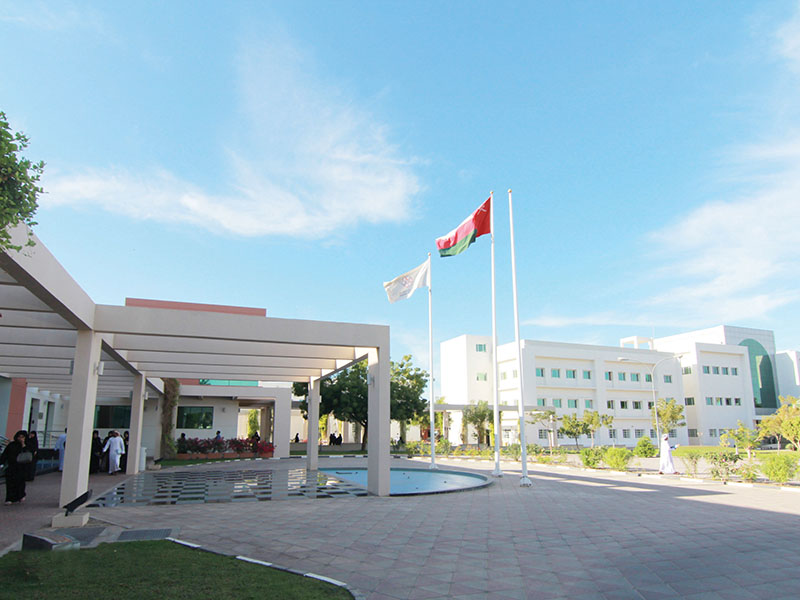











Add comment